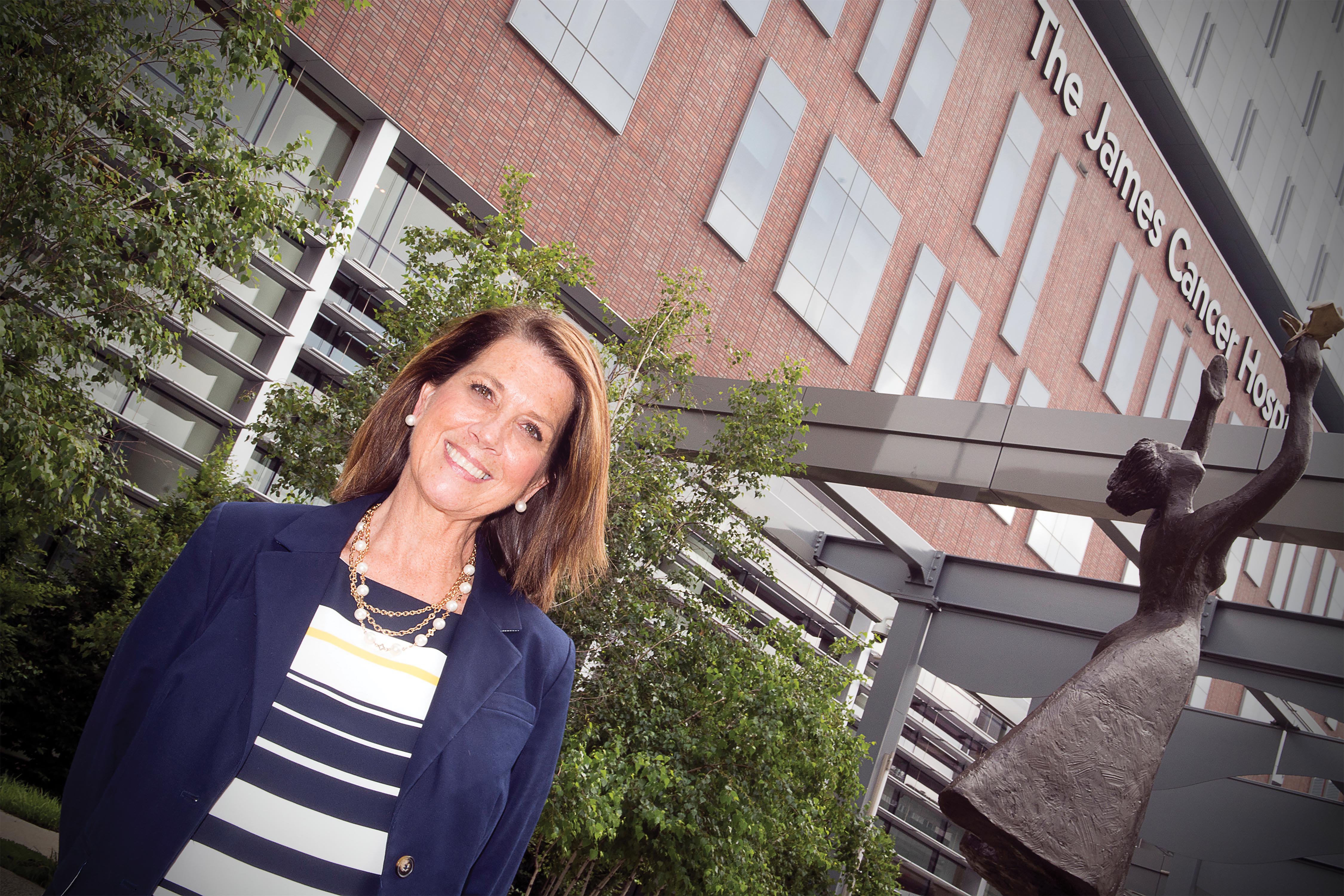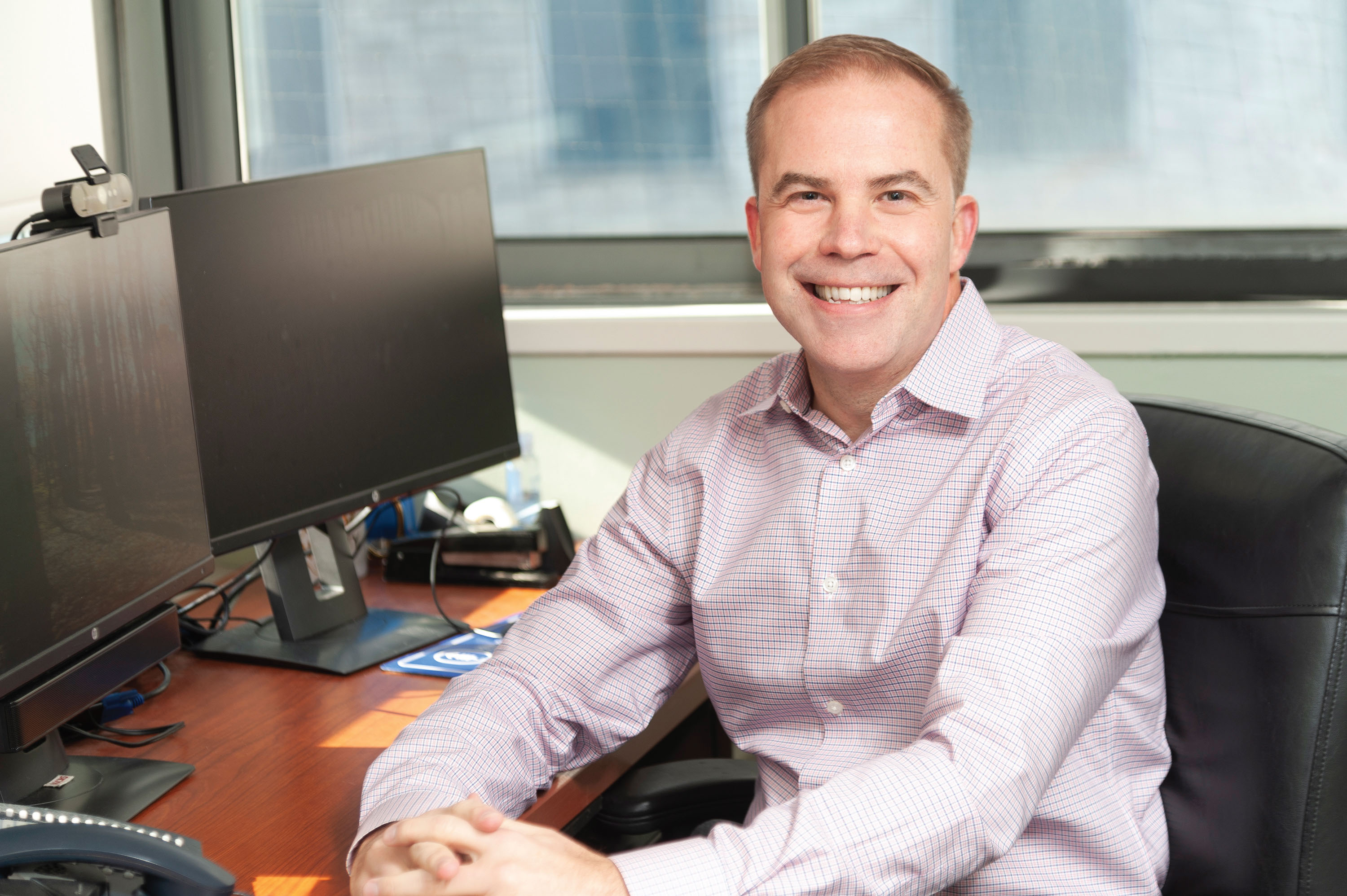Caring for patients with cancer is a complex subspecialty of nursing. In most of their day-to-day work, oncology nurses function independently and require time management, communication, and prioritization skills in addition to extensive clinical knowledge and expertise.
Professional development to maintain or build on that training is a critical responsibility for any nurse. But staying up to date on your skills has another benefit that’s often overlooked: it enhances a nurse’s own mental and emotional health by increasing confidence, resiliency, and well-being.
Professional Development as a Form of Self-Care
Nursing professional development is a specialized component of nursing practice that facilitates the growth of nurses and other healthcare personnel along the continuum from novice to expert, Harper et al. reported in 2017.

“That definition provides us with a holistic view of professional development and guides caregivers to view self-care as the basis for all learning along our career trajectory,” ONS member Diana McMahon, MSN, RN, OCN®, director for professional practice at the James Cancer Hospital and Solove Research Institute at Ohio State University and member of the Columbus ONS Chapter, said. “Self-care is not optional. It must be a part of our professional development because it is a key component of the art and science of our caring practice.”
And self-care has proven benefits: resilient nurses are less likely to make patient errors; are quicker to identify, control, and recover from errors; and have higher patient satisfaction scores.
“Celebrating the Year of the Nurse provided an opportunity for us to look back at all that our profession has accomplished. We know that our communities desperately need the competence and compassion that nurses provide, but caring can negatively affect the nurse if we are not careful,” McMahon said. “Looking ahead, we have opportunities and challenges that require a healthy, resilient workforce. We must acknowledge that self-care and growth are crucial to our mission and that it is at the core of our professional commitment to caring for our patients.”
The National Academy of Medicine’s Future of Nursing 2020–2030 report promoted nurses as healthcare change agents with the advanced training and competency development to build a culture of health equity. It also identified the importance of nursing resilience and well-being as the basis for delivering high-quality care.
“Nurses tend to think that self-care requires a lot of time, but many of the most effective activities are minor adjustments to your daily schedule,” McMahon said. “A few deep breaths, an act of gratitude, reframing a negative situation, talking to a trusted colleague, taking a short walk, listening to music, and laughing—as well as staying updated in our profession—are all ways to practice self-care.”

Why Nurses Need Professional Development
“As professionals, nurses should be engaged in lifelong learning. Professional development should focus on creating opportunities for nurses to challenge their thinking, master communication and interpersonal skills, develop leadership savvy, and move from competent to expert nurses,” ONS member Christopher Brooks, MS, RN, CENP, AOCNS®, director of professional development and education at Memorial Sloan Kettering Cancer Center (MSK) in New York, NY, and member of the New York City ONS Chapter, said.
Nursing staff turnover can result from many factors, Brooks said, but most common are burnout, insufficient staffing levels, job dissatisfaction, and lack of autonomy. Institutional support for professional development can mitigate many of those concerns, such as MSK’s shared governance structure.
“The costs of high turnover can have an enormous impact on hospitals and lead to a domino effect if other nurses become stressed and dissatisfied. Some of the best strategies for reducing turnover revolve around improving the practice environment for nurses,” Brooks said. “These can include developing a shared governance structure to increase feelings of autonomy, recognizing the need for work-life balance, and encouraging a collaborative workplace culture.”
With MSK’s program, “nurses are empowered to function autonomously and have a voice,” Brooks explained. “We offer several professional development courses that foster their ability to build leadership skills and encourage nurses to promote up the career ladder.”
Why Nurses Need Self-Care
Role stress can seriously affect a nurse’s well-being. However, research suggests that nurses are not as committed to caring for themselves as they are their patients.
“While we have overwhelming literature on the negative impact of nursing stress and burnout, the evidence-based interventions to improve these challenges are just starting to appear,” McMahon said. “Professional development and self-care strategies are as unique as the nurse, so assess your individual needs and goals when looking to enhance those parts of your career.”
In a systematic review of randomized controlled trials with physicians and nurses, researchers found that mindfulness and cognitive behavioral therapy can reduce stress, anxiety, and depression. Also, brief interventions such as deep breathing and practices of gratitude can be beneficial to well-being.
Researchers in another study examined peer support’s effect on workplace stress and burnout and found that 100% of the staff participating in the study found a caregiver support team helpful and would recommend it to others.
Additionally, 228 participants who participated in a brief, daily, web-based survey program called Three Good Things exhibited significant improvements in the emotional exhaustion subscale of the Maslach Burnout Inventory, as well as depression symptoms, and happiness at 1, 6, and 12 months.
Building Professional Development Into Practice
Brooks is responsible for onboarding, continuing education, regulatory, and professional development programs at his institution.
“I set the vision and strategic goals for the division of professional development and align them with those of the department of nursing,” he said. “I oversee student and observer placements, provide career counseling, and approve tuition reimbursement requests.”
Brooks said that MSK has a recruitment, retention, and recognition council focused on strategies to build and maintain staff as well as opportunities to recognize nurses for various accomplishments. MSK also has a clinical assistant internship program for student nurses between their junior and senior years.
“It is a very competitive paid internship program, and we receive applications from all over the country. We place around 50 students with nurse preceptors,” Brooks said. “This has been a very successful recruiting strategy for well over 30 years. A member of my staff was in the inaugural group, and she has worked in various positions across the center for over 39 years.”
McMahon said that her institution’s professional practice framework centers around relationship-based care in four areas:
- Patients and families
- Self-care
- Colleagues
- Community
“Aligning organizational values to practice expectations is crucial, so we have built professional self-care into an expectation of our nursing practice,” she said. “However, it takes a lot of intentionality and commitment to turn words into action.”
Her institution responded by providing three mental health clinical nurse specialists who foster staff well-being through programs, education, resources, and one-on-one support to staff and leaders.
“There is no one-size-fits-all approach,” McMahon said. “I am continually looking at the literature to find evidence-based practices that promote an environment where nurses can thrive despite the stressors associated with oncology nurses’ high-intensity role. Thus, quality patient care, professional development, and clinician self-care are all critical components of professional practice, but fortunately, they are synergistic.”
Get Resources to Build Your Professional Development and Self-Care Routine
McMahon encouraged nurses to ask their workplace about additional resources. Employee assistance programs often focus on preventive health and are a great educational tool for holistic wellness.
Brooks recommended consulting journals such as American Journal of Nursing, Nursing Outlook, Journal for Nurses in Professional Development, and Journal of Nursing Education for articles on professional development. Nurses can also find information through the Association for Nursing Professional Development.
“Seek out as many professional development classes and opportunities as possible,” Brooks said. “Participate in shared governance councils where available, become an ONS member, obtain specialty certification, and never be afraid to challenge yourself. Nursing professional development activities should be fun, engaging, and multimodal and stimulate critical thinking.”
McMahon said that ONS resources like the Nursing Self-Care Library and other professional development tools. She added that ONS chapters provide members with resources and programs to support professional well-being. Find your local ONS chapter.
She also suggested using mobile applications to help guide self-care, like the Moodfit App, in which users can set reminders to participate in self-care practices.
“There is no endpoint to professional development or developing good self-care skills; both are an opportunity for continuous growth,” McMahon said. “Our nurses have come up with some meaningful unit-based programs to meet their specific stressors and growth opportunities. We often find the best programs are developed by the nurses who need them.”






